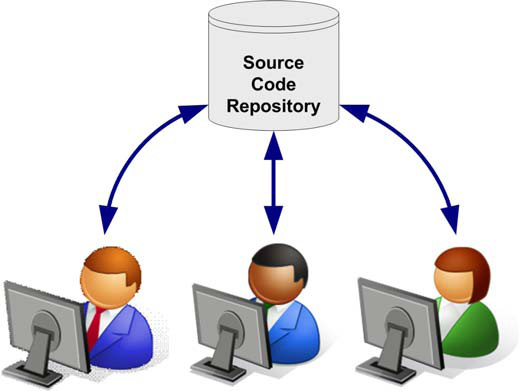Welcome to the world of source code repositories, the gold mines of the software development landscape. In this guide, we'll delve deep into the realm of source code repositories, uncovering their significance, functionalities, and how they serve as invaluable resources for developers worldwide. Source code repositories are the backbone of collaborative development, enabling developers to store, manage, and share code with ease. Let's embark on a journey to understand the intricacies of source code repositories and how they empower developers to innovate and create.

Unraveling the World of Source Code Repositories
Source code repositories, often referred to simply as "repos," are online platforms or systems used by developers to store, manage, and collaborate on code. These repositories serve as centralized hubs where developers can access, contribute to, and track changes to codebases over time. Whether you're working on a personal project, collaborating with a team, or contributing to open-source initiatives, source code repositories play a vital role in the development process.
Key Features and Functionality
Version Control: At the heart of every source code repository is a version control system, such as Git or Subversion. Version control allows developers to track changes to code over time, manage revisions, and collaborate seamlessly on projects. With version control, developers can roll back changes, resolve conflicts, and maintain a clear history of modifications to their codebase.
Collaboration: Source code repositories facilitate collaboration among developers, allowing multiple individuals to work on the same codebase simultaneously. Developers can contribute code, review each other's changes, and provide feedback through features like pull requests, code reviews, and issue tracking. This collaborative workflow promotes teamwork, fosters innovation, and accelerates the development process.
Access Control: Source code repositories offer robust access control mechanisms to manage permissions and restrict access to code as needed. Developers can define user roles, set permissions for specific repositories or branches, and control who can view, edit, or merge code changes. Access control ensures that sensitive code remains secure and that only authorized individuals can make modifications.
Documentation: Many source code repositories include built-in documentation features, such as readme files, wikis, and project pages. Documentation provides valuable context, instructions, and guidelines for developers working with the codebase. By documenting code effectively, developers can streamline onboarding, facilitate collaboration, and ensure that code is well-understood and maintained over time.
Navigating the Landscape of Source Code Repositories
As you explore the world of source code repositories, keep the following tips in mind to make the most of your experience:
Choose the Right Platform: There are many source code repository platforms available, each with its own features, workflows, and community. Consider factors such as compatibility, scalability, and integration with your existing tools and technologies when choosing a platform.
Understand Branching and Merging: Branching and merging are fundamental concepts in source code repositories, allowing developers to work on isolated features or fixes without affecting the main codebase. Familiarize yourself with branching strategies, such as feature branches, release branches, and hotfix branches, to effectively manage code changes and releases.
Embrace Collaboration: Source code repositories thrive on collaboration. Take advantage of collaboration features like pull requests, code reviews, and issue tracking to engage with fellow developers, share knowledge, and contribute to open-source projects. Collaboration not only enhances the quality of code but also fosters a sense of community and camaraderie among developers.
Practice Good Version Control Habits: Effective version control is essential for maintaining a stable and reliable codebase. Practice good version control habits, such as committing frequently, writing descriptive commit messages, and keeping commits focused and atomic. By adhering to best practices, you can ensure that your code history remains clean, organized, and easy to navigate.
Source code repositories are the backbone of modern software development, providing developers with the tools and infrastructure needed to collaborate, innovate, and create. By understanding the significance of source code repositories and mastering their functionalities, developers can unlock new levels of productivity, efficiency, and creativity in their projects. So, whether you're a seasoned developer or just starting out, dive into the world of source code repositories and explore the gold mines waiting to be discovered. Your next great project awaits!

No comments yet